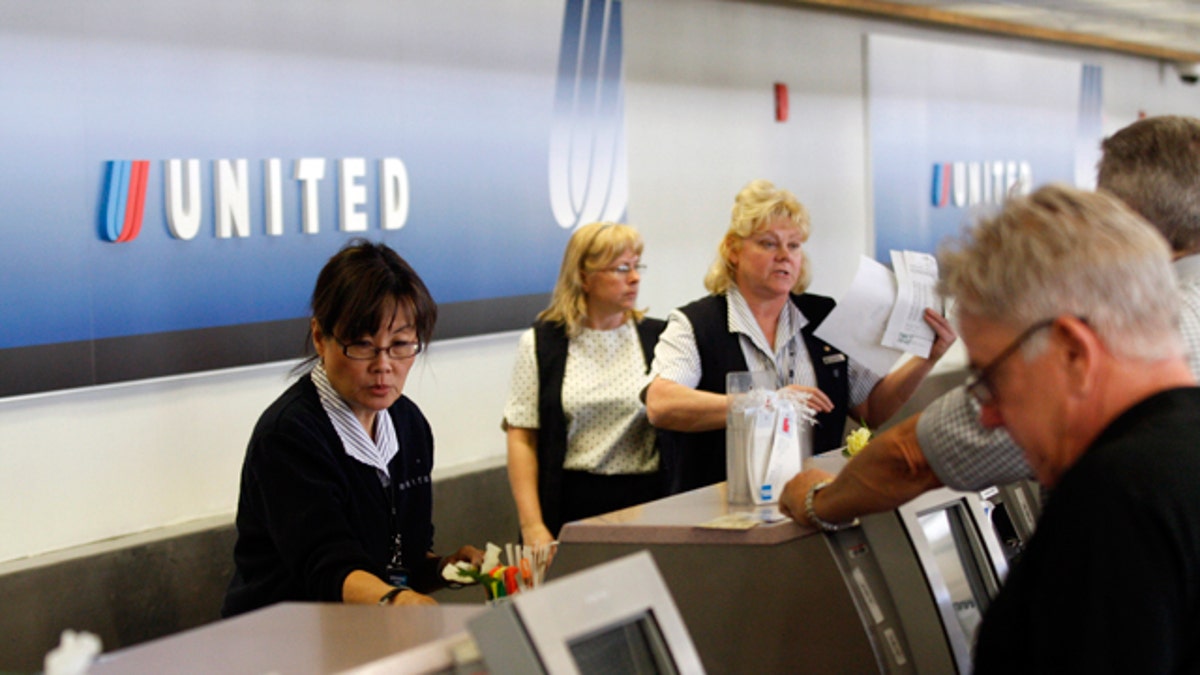
(Reuters)
Every day, I receive emails from disgruntled fliers who feel like they've been wronged by the airlines. Some of these complaints I have less sympathy for, frankly, such as the guy who put $5,000 in cash in his checked luggage and was shocked to discover it had been stolen (you know you're not supposed to put anything valuable in checked bags, right?).
But other airline shenanigans I hear about raise my blood pressure. And although the U.S. Department of Transportation has recently come up with some new regulations that take the airline industry to task, such as the tarmac delay rule and upping the compensation for involuntarily bumped passengers, I think we need some other rules to protect passengers.
And before someone says, "Yeah, but these regulations will cost the airlines more and they'll increase fares," I say maybe people would fly more if we had some of these protections in place.
Southwest Airlines, for example, doesn't charge a ticket change fee and it's doing quite nicely, thank you.
Here are 10 new regulations I'd like to see the Department of Transportation impose.
1. If an airline changes its schedule before you depart on a trip, and such schedule change no longer suits your schedule, the airline must secure you transportation on another airline at your original fare. Merely refunding your original payment and forcing you to buy a much more expensive last minute fare on another airline, which is the common industry response, is not acceptable.
2. If an airline makes a voluntary schedule change (such as changing daily service to a five-times-per-week schedule) and you are forced to spend money on hotels and meals, such as a forced overnight midway in your trip, the airline must pick up the bill for costs you incur (okay, within reason). Similarly, if you can't get to your destination because of a schedule change and your non-refundable hotel room goes empty as a result, the airline must compensate you. After all, if you change your schedule the airline will charge at least $150. Why can they change schedules for free?
3. If an airline cancels a flight and you're traveling on a frequent flyer ticket, any fees associated with that fare must be refunded.
4. If you are due a refund or any kind from an airline, said refund must be paid in full in 30 days.
5. If your flight is delayed or canceled due to anything within the airline's reasonable control, the airline must provide adequate lodging, meals, and transportation. It must also put you on another airline's flight if that flight will get you to your destination sooner than your original airline's next flight out. (Basically, a return to the pre-deregulation Rule 240.)
6. The Department of Transportation has ruled that airlines must now refund your checked bag fees if it loses your luggage, but I want them to refund passengers even if the bag is delayed for more than an hour. Refunds should be easy to apply for, and paid in cash, not vouchers.
7. Here's one that really makes me mad: If an airline flies a route nonstop it should be prohibited from substituting a connecting flight. I hear too many stories of passengers being notified months before takeoff that even though the airline still flies a route nonstop on a wide-body jet they're now connecting on regional jets through a hub airport. When you buy a steak at a restaurant the management can't substitute hamburger.
8. Here's another one from my in-box. If a passenger buys a non-refundable ticket, and said passenger dies, passenger's fare must be refunded in full within 30 days, and all traveling companions must also have their fares refunded. Now, the airline industry is going to say, "Yeah, well if you buy a ticket to a rock concert and you die, you don't get a refund either," but come on, you can resell the rock concert ticket or give it to someone else; not so with an airline seat.
9. Airlines are required to publish on-time statistics for their flights, allowing passengers to avoid chronically late flights. But how about publishing seat pitch (i.e., legroom) data, so that consumers can avoid airlines that jam too many seats into their planes? Or maybe there should be mandated minimum amount of legroom.
10. Airlines should be required to install one or two rows in the economy section with extra-wide seats (two-by-two rather than the typical three-by-three configuration) to accommodate "passengers of size." This will prevent other passengers from being squished if seated next to extra-wide seatmates.
11. If a flight is delayed owing to any cause reasonably within the airline's control (such as a computer malfunction or poorly maintained equipment), then they must pay compensation. After all, it seems to work in Europe where passengers are entitled to as much as 600 euros if a long-haul flight is severely delayed.
12. Any finally, how about requiring airlines to refund any taxes paid on a non-refundable ticket if the passenger cancels the flight. If you buy something at Sears and return it, does Sears keep the sales tax?
George Hobica is a syndicated travel journalist and founder of the low-airfare listing site Airfarewatchdog.com.








































